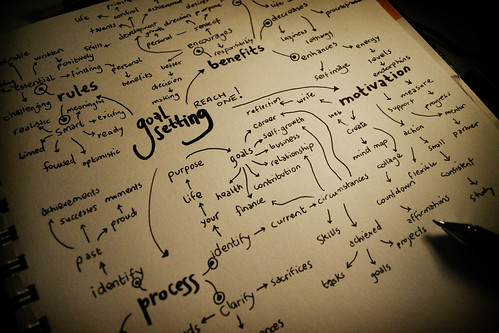You don’t have to wake up at 5 a.m. to be a prolific scholar. You do have to write however. And nearly all of the prolific academics I have met are daily writers. Daily writing is one of the most important strategies I can recommend to boost your productivity. Theresa MacPhail calls daily writing a “no-fail secret to writing a dissertation.” That advice is just as crucial for new (and older) faculty.
It’s also backed up by research.
A study by Robert Boice, reported in his book, Professors as Writers: A Self-Help Guide to Productive Writing as well as in this article, provides concrete evidence that daily writing produces both more writing and more ideas. Boice conducted an experiment with 27 faculty members who wanted to improve their productivity. He divided them into three groups and examined their writing progress for 10 weeks.
Boice instructed Group No. 1 – the abstinent writers – not to schedule any writing sessions but to write only if they felt compelled to. He also asked them to keep a log of creative ideas to write about. The thought behind planned abstinence was that these writers would have a list of creative ideas ready when they finally did feel like writing. Result: The abstinent writers produced an average of 0.2 pages a day and had one creative idea a week.
Boice told Group No. 2 – the spontaneous writers – to schedule writing sessions five days a week for 10 weeks, but encouraged them to write in those sessions only when they were in the mood. They also were asked to use part of the scheduled writing time each day to come up with a new idea to write about. Result: The spontaneous writers produced an average of 0.9 pages a day and one creative idea a week.
Group No. 3 – the forced writers – agreed to a strict accountability plan. They scheduled five writing sessions a week for 10 weeks, and kept a log of creative ideas to write about. To ensure they would write every day, whether or not they felt like it, the members of this group each gave Boice a prepaid check for $25, made out to an organization they despised. If they failed to write in any of their planned sessions, Boice would mail the check. Result: The forced writers produced an average of 3.2 pages a day and one creative idea each day.
I first heard about this study in 2006 from Kerry Ann Rockquemore. When I saw the results, I was convinced I wanted to be in Group No. 3. I have been a daily writer ever since, and recently submitted my fifth book manuscript for publication.
If you are not a daily writer, but are producing as much writing as you think you should, then there is no reason to change your habits. However, if you are unhappy with your productivity and would like to write more, my experience as well as the research show that daily writing is very likely to work for you. Here’s how.
Pull out your calendar and schedule writing sessions five or six days a week. Writing experts Patricia Goodson and Wendy Belcher both recommend that you start with 15 minutes a day if you have never tried daily writing before, or if you are overwhelmed with other tasks. Patricia Goodson recommends that you start with 15 minutes and increase your writing time by one minute each day until you reach your desired level.
If you are not sure what counts as daily writing, check out this list of 10 ways to write every day.
Nearly all writing experts agree that you should not schedule more than four hours for a writing session. My colleague Anthony Ocampo says that if you push yourself too far, you might get a “writing hangover.” If you have one day that you can dedicate to a long stretch of time for writing, you may want to schedule four hours for that day. On your busiest days, set aside at least 15 minutes – even if it means waking up 15 minutes earlier in the morning.
Once a writing session is on your calendar, treat it like any other appointment. By that I mean show up for it and schedule your other obligations around it. If you have scheduled a writing session from 10:30 to 11 a.m., and a student emails to ask if she can come by at 10:30, tell her you already have an appointment at that time and to come instead at 11 a.m. It might seem odd at first to be making appointments with yourself, but, over time, you will get used to it. In fact the busier you are, the more crucial it is it schedule your writing time and stick to it.
Once you start writing every day, it becomes a habit. I will admit there are days I don’t get my writing done, but I notice it when I don’t. I notice it so much that I make sure to write the next day.
My preference is to write every morning from Monday to Friday for at least an hour, but usually for two. What about you? Are you already a daily writer? How long have you been at it, and has it made a difference in your productivity?
Re-posted from: https://chroniclevitae.com/news/836-the-trick-to-being-a-prolific-scholar

